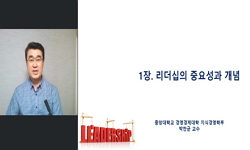어떤 이유 혹은 동기로 인해 국제화에 참여하는지를 조사하였다.연구 자료는 국내 4년제 대학이 연구의 목적은 대학의 다양한 구성원들이 고등교육의 국제화를 어떻게 이해하고 있는지를 ...
http://chineseinput.net/에서 pinyin(병음)방식으로 중국어를 변환할 수 있습니다.
변환된 중국어를 복사하여 사용하시면 됩니다.
- 中文 을 입력하시려면 zhongwen을 입력하시고 space를누르시면됩니다.
- 北京 을 입력하시려면 beijing을 입력하시고 space를 누르시면 됩니다.
고등교육의 국제화의 개념, 동기, 전략: 비교연구
한글로보기https://www.riss.kr/link?id=G3613209
- 저자
- 발행기관
-
발행연도
2007년
-
작성언어
Korean
- 주제어
-
자료형태
한국연구재단(NRF)
-
0
상세조회 -
0
다운로드
부가정보
국문 초록 (Abstract)
조사결과,국내 대학인들이 지닌 국제화의 개념과 이유는 그들이 속한 대학문화(역할,전공, 대학의 유형과 규모)등과 유의미한 연관이 있다는 사실이 밝혀졌다.대체로 한국 대학인들은 국제화를 세계 수준의 교육 시스템을 구축하고 해외 교환/연수 프로그램 등 국제적 활동을 촉진하는 일로 개념화하는 경향이 있음이 드러났고,대학이 좀더 국제화되어야 하는 이유로는 국제사회에 필요한 유능한 국제인력 배출과 개인 외국어 능력향상이나 취업 및 승진 등 개인적인 동기가 우세한 것으로 밝혀졌다.
어떤 이유 혹은 동기로 인해 국제화에 참여하는지를 조사하였다.연구 자료는 국내 4년제 대학이 연구의 목적은 대학의 다양한 구성원들이 고등교육의 국제화를 어떻게 이해하고 있는지를 비교분석하는 것이다.이 목적을 위해 교수,학생,교직원들이 고등교육 국제화를 무엇이라고 개념하고 있는지 그리고 10개교에서 1,488명의 응답자들로부터 설문지법을 통해 수집하였고,연구대상은 대학 내 다양한 집단들을 대표하도록 선정되었다.자료 분석은 응답자들이 속해 있는 대학 안에서의 역할(학생,교수,행정직원)과 전공분야,그리고 대학의 제도적 유형(국립,사립)과 규모(대규모,중소규모)같은 대학문화의 요인들이 응답자가 지닌 국제화에 대한 이해와 어떤 연관을 갖는지에 중심으로 이루어졌다.
조사결과,국내 대학인들이 지닌 국제화의 개념과 이유는 그들이 속한 대학문화(역할,전공, 대학의 유형과 규모)등과 유의미한 연관이 있다는 사실이 밝혀졌다.대체로 한국 대학인들은 국제화를 세계 수준의 교육 시스템을 구축하고 해외 교환/연수 프로그램 등 국제적 활동을 촉진하는 일로 개념화하는 경향이 있음이 드러났고,대학이 좀더 국제화되어야 하는 이유로는 국제사회에 필요한 유능한 국제인력 배출과 개인 외국어 능력향상이나 취업 및 승진 등 개인적인 동기가 우세한 것으로 밝혀졌다.
다국어 초록 (Multilingual Abstract)
Second, most studies have focused exclusively on administrators, rather than also paying attention to other key members of the university community, such as faculty members and students. Hence we know little about how diverse members of higher education are different or similar in their concepts and practices in terms of internationalization of higher education. Finally, few studies have paid attention to how diverse academic cultures such as disciplinary and institutional cultures in fluence on the perspective of university members about the process of internationalization.
This study investigated how diverse disciplinary and institutional cultures influence the conceptualization and implementation of internationalization of universities in South Korea. The theoretical assumption used for this inquiry was based upon the University Culture Theory (Clark, 1980), which asserts that individuals and their subgroups in colleges and universities experience international education indifferent ways according to the disciplinary, institutional, and national cultures to which they belong. Austin(1997) particularly confirms that disciplines are the primary units of membership and identification in university community, because each discipline produces and maintains its own way of thinking, body of literature, methods of inquiry, orientation to teaching and research, traditions, reward systems, incentives, and criteria for status and dignity. Levi (1992) insists that individuals and organizations are not "free agents," but make choices within cultural strains. Due to the complexity and diversity of academic cultures in colleges and universities, members often face conflicting cultural imperatives (Birnbaum, 1992; Walker, 1979). Under such cultural conflict, individuals and organizations constantly make choices and accommodations in order to earn out comes and maximize their own interests and rewards (Gumport & Sporn, 1999).
Based upon these theoretical assumptions, this study explored the meanings, rationales, and strategies that faculty members and students at universities in South Korea attribute to the internationalization of higher education. This study also paid its attention to the commonalities and differences between participants from diverse disciplines. Data were collected from 4 disciplines (Engineering, Natural Science, Business, and Social Science) at 10 four-year universities in Korea. Questionnaire was utilized. The questionnaire was administered to 1,289 university members (1,133 students and 156 faculty members). The participants represented diverse disciplines and institutions as well as personal backgrounds, such as gender, age, academic rank, and international experience. The quantitative data from questionnaire surveys were analyzed using frequencies, ranks, and chi-square tests.
The major findings of the study were: (1) Types of disciplines significantly affects how the respondents conceive and practice the internationalization of Korean higher education; (2) Internationalization of higher education is viewed by Koreans as a personal rather than a public good; (3) Social legitimacy is an important rationale of Koreans for their participation in the internationalization process. The cultural patterns and the conceptual framework of internationalization of Korean higher education are proposed based on the findings of the study and the institutional theories used for its assumptions.
As the international dimensions of society have become increasingly important in higher education, colleges and universities around the world have become concerned about "internationalization" in their institutions. Internationalization of higher educ...
As the international dimensions of society have become increasingly important in higher education, colleges and universities around the world have become concerned about "internationalization" in their institutions. Internationalization of higher education can be defined as a process of integrating international dimensions in to teaching, research, and service functions of a higher education institution. During the past decades, many studies on the internationalization of higher education have been done; yet many of those studies tend to be limited in scope and approach. First, because the studies have mainly concerned the United States and Europe, we know little about how internationalization is perceived and implemented at universities in nonwestern countries.
Second, most studies have focused exclusively on administrators, rather than also paying attention to other key members of the university community, such as faculty members and students. Hence we know little about how diverse members of higher education are different or similar in their concepts and practices in terms of internationalization of higher education. Finally, few studies have paid attention to how diverse academic cultures such as disciplinary and institutional cultures in fluence on the perspective of university members about the process of internationalization.
This study investigated how diverse disciplinary and institutional cultures influence the conceptualization and implementation of internationalization of universities in South Korea. The theoretical assumption used for this inquiry was based upon the University Culture Theory (Clark, 1980), which asserts that individuals and their subgroups in colleges and universities experience international education indifferent ways according to the disciplinary, institutional, and national cultures to which they belong. Austin(1997) particularly confirms that disciplines are the primary units of membership and identification in university community, because each discipline produces and maintains its own way of thinking, body of literature, methods of inquiry, orientation to teaching and research, traditions, reward systems, incentives, and criteria for status and dignity. Levi (1992) insists that individuals and organizations are not "free agents," but make choices within cultural strains. Due to the complexity and diversity of academic cultures in colleges and universities, members often face conflicting cultural imperatives (Birnbaum, 1992; Walker, 1979). Under such cultural conflict, individuals and organizations constantly make choices and accommodations in order to earn out comes and maximize their own interests and rewards (Gumport & Sporn, 1999).
Based upon these theoretical assumptions, this study explored the meanings, rationales, and strategies that faculty members and students at universities in South Korea attribute to the internationalization of higher education. This study also paid its attention to the commonalities and differences between participants from diverse disciplines. Data were collected from 4 disciplines (Engineering, Natural Science, Business, and Social Science) at 10 four-year universities in Korea. Questionnaire was utilized. The questionnaire was administered to 1,289 university members (1,133 students and 156 faculty members). The participants represented diverse disciplines and institutions as well as personal backgrounds, such as gender, age, academic rank, and international experience. The quantitative data from questionnaire surveys were analyzed using frequencies, ranks, and chi-square tests.
The major findings of the study were: (1) Types of disciplines significantly affects how the respondents conceive and practice the internationalization of Korean higher education; (2) Internationalization of higher education is viewed by Koreans as a personal rather than a public good; (3) Social legitimacy is an important rationale of Koreans for their participation in the internationalization process. The cultural patterns and the conceptual framework of internationalization of Korean higher education are proposed based on the findings of the study and the institutional theories used for its assumptions.
국문 초록 (Abstract)
2.주요 개념 및 이론
1)개념:국제화의 정의
2)이론
①대학문화(universityculture)이론
②합리적선택(rationalchoice)이론
3.연구방법
4.연구 결과 및 토론
가.국제화의 의미
나.국제화의 이유
(1)대학차원에 본 국제화의 이유
(2)개인 차원에서 본 국제화의 이유
5.결론:요약 및 제언
<참고문헌>
<Abstract>
1.서론 2.주요 개념 및 이론 1)개념:국제화의 정의 2)이론 ①대학문화(universityculture)이론 ②합리적선택(rationalchoice)이론 3.연구방법 4.연구 결과 및 토론 ...
1.서론
2.주요 개념 및 이론
1)개념:국제화의 정의
2)이론
①대학문화(universityculture)이론
②합리적선택(rationalchoice)이론
3.연구방법
4.연구 결과 및 토론
가.국제화의 의미
나.국제화의 이유
(1)대학차원에 본 국제화의 이유
(2)개인 차원에서 본 국제화의 이유
5.결론:요약 및 제언
<참고문헌>
<Abstract>











